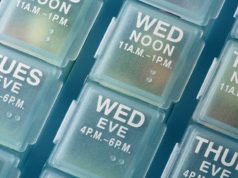Barriers to obtaining meds after emergency department visits include lack of access due to pharmacy hours, affordability, lack of understanding of importance
By Elana Gotkine HealthDay Reporter
THURSDAY, June 1, 2023 (HealthDay News) — For pediatric patients, dispensation of medication in the emergency department is likely to improve medication adherence, according to a technical report published online May 30 in Pediatrics.
In the report, Suzan S. Mazor, M.D., from the University of Washington School of Medicine in Seattle, and colleagues present and discuss evidence relating to the dispensation of medications in the emergency department.
The authors note that continuation of medical care after emergency department discharge is dependent on caregivers’ understanding of follow-up instructions and adherence to medication administration recommendations. Lack of access due to pharmacy hours, affordability, and lack of understanding of the importance of medication as part of treatment are barriers to obtaining medications after emergency department visits. Furthermore, emergency department visits frequently occur at times when pharmacies are closed, and caregivers are typically concerned with getting their child directly home after discharge. Consequently, after discharge from the emergency department, about one-third of patients fail to obtain priority medications from a pharmacy. A major convenience that helps to overcome this obstacle and improve the likelihood of medication adherence is the option of judiciously dispensing medications at emergency department discharge. To ensure complete and comprehensive care, emergency care encounters should routinely be followed by visits to the primary care provider medical home.
“Dispensing important and necessary medications from the emergency department outpatient pharmacy in selected instances, if logistically, legally, and financially possible, allows medication to be provided more conveniently, reliably, and in a manner more proximate to the encounter,” the authors write.
Copyright © 2023 HealthDay. All rights reserved.








